The National Aviation Hall of Fame Announces the “Class of 2024”
Ground-breaking engineers, leaders in aviation safety and access, a NASA mathematician, and a pioneering NASA astronaut are all included in this remarkable group.
DAYTON, OHIO – October 16, 2023 – The National Aviation Hall of Fame (NAHF) is excited to reveal the exceptional individuals chosen for induction in the prestigious Class of 2024. This illustrious Annual Enshrinement event is set to take place in the fall of 2024.
Founded in 1962, the NAHF has been a symbol of excellence in aviation and space exploration. With 262 distinguished honorees inducted, it stands as the only Congressionally-chartered aviation hall of fame in the United States. A dynamic panel of over 130 aviation professionals from across the nation constitutes the NAHF Board of Nominations. Each year, they face the arduous task of selecting the most deserving air and space pioneers for induction.
“We are delighted with the exceptional caliber of this year’s inductees, and we eagerly anticipate their induction next autumn,” stated Tom Lodge, Chair of the NAHF Board of Nominations. “From innovators and industry trailblazers Burrell, Kao, and Sutter to forward-thinking visionaries like Bateman and Chabrian and the esteemed aerospace pioneers Gregory and Johnson, the Class of 2024 within the NAHF embodies the very essence of excellence in aviation. We extend our heartfelt appreciation to the Board of Nominations for their rigorous and meticulous selection process.”
Don’t miss the opportunity to celebrate these luminaries in the aviation and space industry at the 2024 Enshrinement ceremony. Sign up for further updates as the date approaches at nationalaviation.org/newsletter. For details on sponsorship of the 60th annual Enshrinement, contact Aimee Maruyama, President & CEO.
Meet the Distinguished Class of 2024
The NAHF Class of 2024 is a remarkable ensemble of individuals who have left an indelible mark on the aviation and space industries. Their contributions span a wide spectrum of accomplishments, furthering the frontiers of flight and exploration. This year’s honorees include:
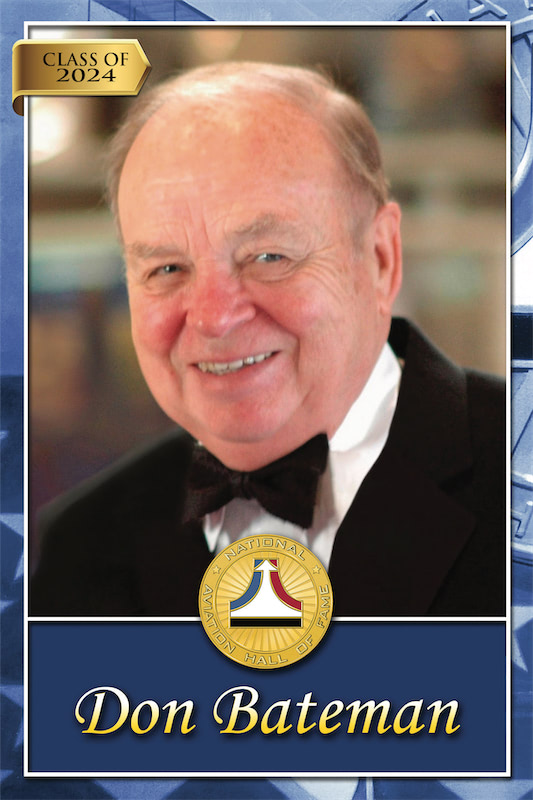 (The late) Don Bateman – Aerospace engineer, revolutionized aviation safety by developing groundbreaking innovations, including the Ground Proximity Warning System (GPWS) and Enhanced Ground Proximity Warning System (EGPWS) that provide critical alerts to pilots about their proximity to the ground, obstacles, and terrain. Bateman spent most of his career as chief engineer of flight safety avionics at Honeywell before retiring in July 2016. |
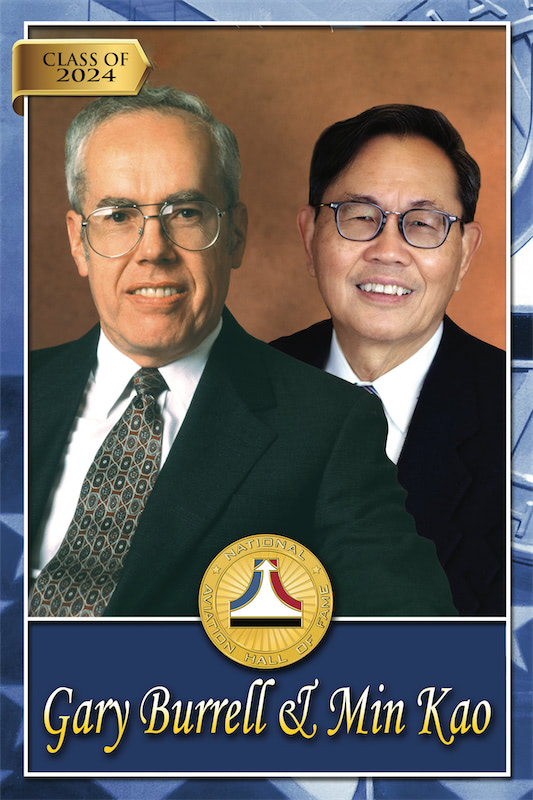 (The late) Gary Burrell and Dr. Min Kao – Co-founders of Garmin brought GPS technology to a broad range of consumer markets, including aviation. The duo brought products to market that revolutionized avionics, including the world’s first fully certified GPS receiver for instrument approaches, the G1000 glass-integrated flight deck, and inspired Garmin Autoland, the world’s first certified autonomous system that activates during an emergency to safely land an aircraft without human intervention earning Garmin the prestigious Robert J. Collier Trophy. |
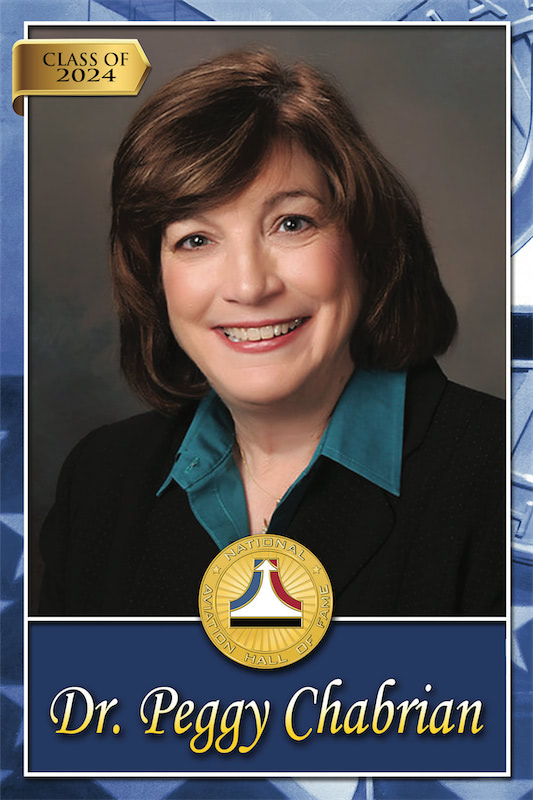 Dr. Peggy Chabrian – Founder and long-time president of Women in Aviation International. Grew the organization from its first conference attended by 150 people in 1990 to an organization representing more than 15,000 women in all aspects of aviation today. Her unwavering commitment has been instrumental in providing resources and opportunities, encouraging women to be active in the aviation industry. |
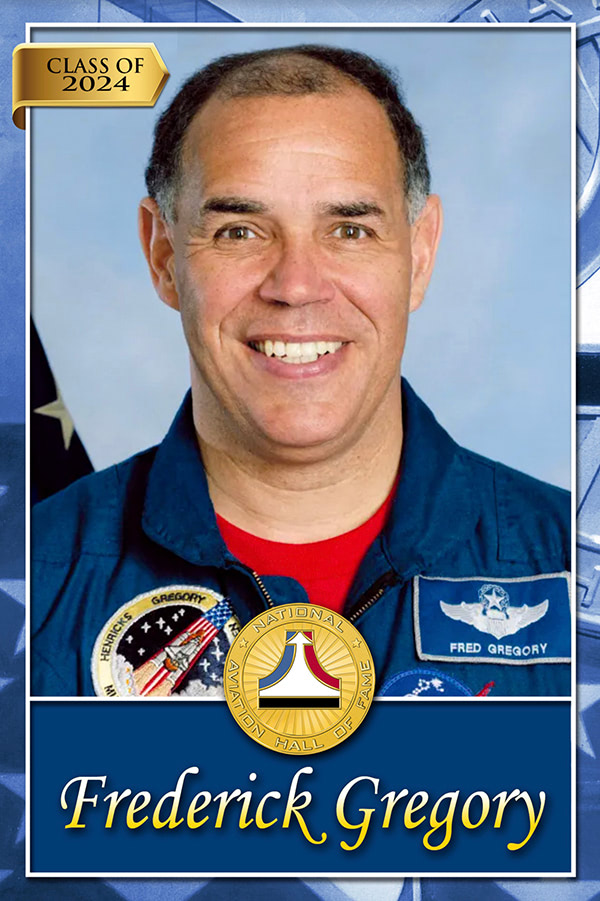 Col. Fredrick Gregory – United States Air Force pilot, accomplished military engineer, distinguished test pilot, NASA astronaut, and former NASA Deputy Administrator. One of the pioneering first three African-Americans to venture into space, the first African-American to pilot a shuttle mission in 1985, and the first to command a space mission in 1989. |
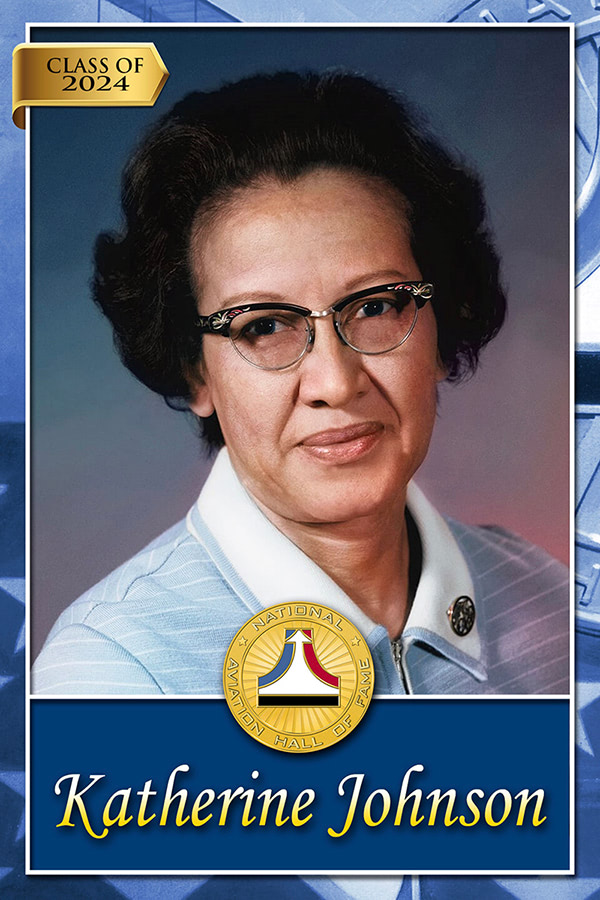 (The late) Katherine Gobel Johnson – American mathematician, played an indispensable role in NASA’s early space exploration endeavors. Her precise calculations of orbital mechanics, executed during her tenure as a NASA employee, were pivotal in ensuring the success of not only the first but also subsequent U.S. crewed spaceflights. |
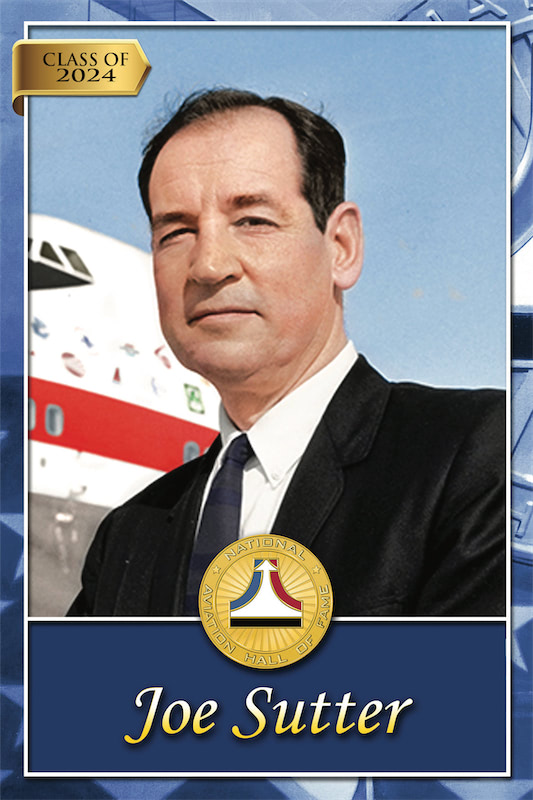 (The late) Joseph (Joe) Sutter – “Father of the 747”. Chief engineer for the development of the 747. His lifelong career at The Boeing Company, technical leadership, and management skills were instrumental in developing three generations of advanced transports, significantly contributing to U.S. preeminence in civil aeronautics. |


